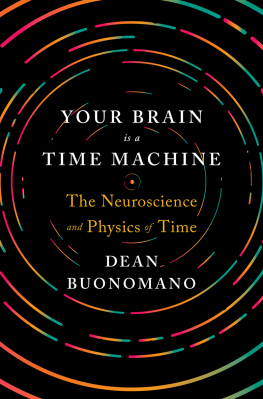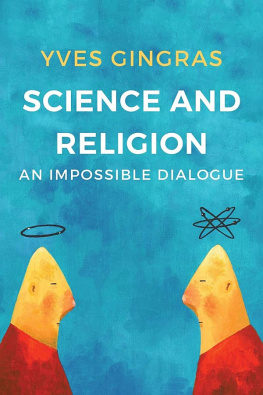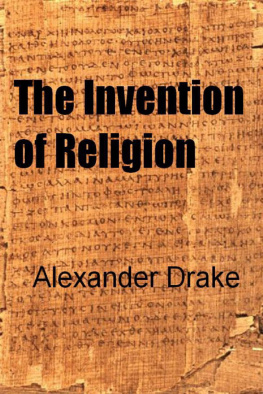ALSO BY MICHAEL MCGUIRE
Believing: The Neuroscience of Fantasies,
Fears, and Convictions
Published 2017 by Prometheus Books
God's Brain. Copyright 2010 Lionel Tiger and Michael McGuire. Preface to the paperback copyright 2017 by Lionel Tiger. All rights reserved. No part of this publication may be reproduced, stored in a retrieval system, or transmitted in any form or by any means, digital, electronic, mechanical, photocopying, recording, or otherwise, or conveyed via the Internet or a website without prior written permission of the publisher, except in the case of brief quotations embodied in critical articles and reviews.
Cover design by Grace M. Conti-Zilsberger
Cover design Prometheus Books
Inquiries should be addressed to
Prometheus Books
59 John Glenn Drive
Amherst, New York 14228
VOICE: 7166910133
FAX: 7166910137
WWW.PROMETHEUSBOOKS.COM
21 20 19 18 17 5 4 3 2 1
Library of Congress Cataloging-in-Publication Data
Names: Tiger, Lionel, 1937- author. | McGuire, Michael T., 1929- author.
Title: God's brain / by Lionel Tiger and Michael McGuire.
Description: 2nd paperback edition. | Amherst : Prometheus Books, 2017. | Includes bibliographical references and index.
Identifiers: LCCN 2017017122 (print) | LCCN 2017041949 (ebook) | ISBN 9781633883383 (ebook) | ISBN 9781633883376 (pbk.)
Subjects: LCSH: Psychology, Religious. | Religion. | God. | Brain.
Classification: LCC BL53 (ebook) | LCC BL53 .T54 2017 (print) | DDC 200.1/9dc23
LC record available at https://lccn.loc.gov/2017017122
Printed in the United States of America
It's both a pleasure and painful to write a preface to the paperback edition of God's Brain.
The pain is due solely to the absence from the world of Michael McGuire, who died in February 2016 and with whom preparing this book was a joy and an adventure. The emergence of the book was a testament to the effort to engage in disciplined thinking about the most general and significant of our species dilemmas. And if there is a god, its acceptable automatic tenure in the world is invalidated by the pointlessness of removing from human turmoil such a generous and skillful healer and thinker as Michael McGuire, MD.
The pleasure is from the success of the book, with an audience in English and several other languages (e.g., Dutch, Turkish, and Korean)readers evidently found the book a scholarly work that was durably sturdy and helpfully clear. Its publication was an act of affirmative contact with people evidently as provoked and perturbed with religious fuss and bother as were Mike and I.
We danced in a small ballroom boasting relatively few people who were prepared to examine religion without committing either to its hot support or wielding the cold, soon-crimson swords of religious warfare. We could not intellectually and scientifically digest the analytical and often aggressively literal atheism of prominent thinkers in the fieldwhich is finally explanation-less. Nor could we offer to grip on the other outstretched hand the wholly confident declarations about God chanted by luxuriously robed or proudly austere managers of after-death interaction and negotiation with the divine.
Surely this was not a matter exclusively for theorists of theologythose proud managers of conjectural this and that. Surely we were correct to confer on religion the dignity of a plausible empirical residencethe brainwhich was a far more likely permanent home for human religion than the elbow or the big toe or the left shoulder. Surely we were entitled to ask quite humbly reasonable questions about the reasons for the burly giant influence of the brain and how it made people not only sing hymns and eat or not eat particular foods but also seek favor from the managers of heaven and independence from the dread keepers of the devil's dungeons.
And we had to face the issue: why were beliefs conjured and sustained in the brain so easily and widely associated with extravagant murderousness that also generated roiling communal satisfaction among enthusiasts of holy war?
Those were the kinds of questions we presented to ourselves and shared with our readers. They were simple questions about a vast matter. They were animated by the conviction that nothing human beings craved, did, or hated was beyond sympathetic comprehension and even evaluation and admiration. You could be fed up with theologians or zealots. But nonetheless you could and should give a respectful ear to a thunderous Mass and gaze a sharply long time at a tall cathedral. You had to, to understand the matter. Surely sometimes excess revealed the normal.
Are there salient scientific advances in knowledge about the brain since our book was published? Of course. There's almost a new scientific continent that has been burgeoning, helping people's health, building our understanding and self-understanding, and penetrating a mystery by creating yet another mystery to solve. Another book or four or fourteen or four thousand would be necessary to begin to account for the trove of research findings, syntheses, histories, x-rays, countless tales from countless labs and thinkers at desks and neurosurgeons on emergency midnight duty. I could not and would not essay an account of all of this richness, especially without Michael but also because it's no longer my full-time trade.
Then what is the most salient, frightening, and long-term preemptive finding embedded in God's Brain? As we noted, the brain evolved first to act, and only then to think. And as the world turns, and people roil and toil and move and hide, there recurs a major show of the power of the brain when it is determined that the members of group A threaten or disgust or odorously irritate members of group B. Then the members of group A see only one completely desirable solution to the deplorable existence of group Bwhich is to kill all its members, the more colorfully and the faster the better.
Even within an overwhelmingly complex world, the simple power of cortical definition of members of Homo sapiens into strict and arbitrary categories overcomes all nuance.
This is what the rambunctious zealot appears to conclude:
You are a member of That Awful Group. The whole crowd of you miserable denizens is obviously a blight on the earth. Without question, it will be desirable to kill you as soon as we can manage it. The welcome bubble-up of your red blood from your gashed skin underscores our devotion and our virtue. This we believe. It may be unbearably harsh, but it is our way, and the only way. If others are alarmed and frightened, that is how it is. Pay heed to God or Allah or whoever on behalf of whom you act.
However, as characters in the plays of Shakespeare say, Stay. Is it not merely trivially ghoulish to emphasize religious warfare in the world in a book that is nonetheless evenly seeking a broadly general understanding of the brain?
Yes, yes. We live in a real world, the empirical reality of which compels us to stare equally, if not more cautiously, even suspiciously, at the weightlifter as at the ballerina. Attention must be paid, and emphasized, to what appears to be an enhanced salience of brutal human conflict based on codified rules of living. These are systems usually described as religions. What is pertinent here is that such aggregates appear to find intolerable the continued existence of other sets of rules of living. Equally intolerable are, of course, the degraded people who follow and may even worship them.

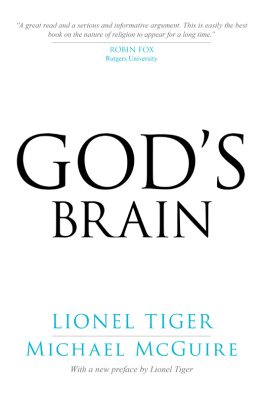

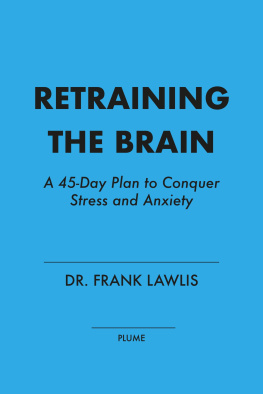
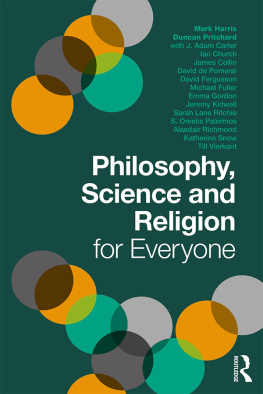
![SpeedyReads [Dell] - Summary of Switch On Your Brain; The Key To Peak Happiness, Thinking, And Health](/uploads/posts/book/117453/thumbs/speedyreads-dell-summary-of-switch-on-your.jpg)
